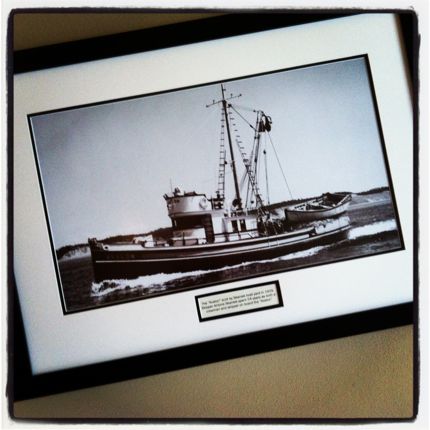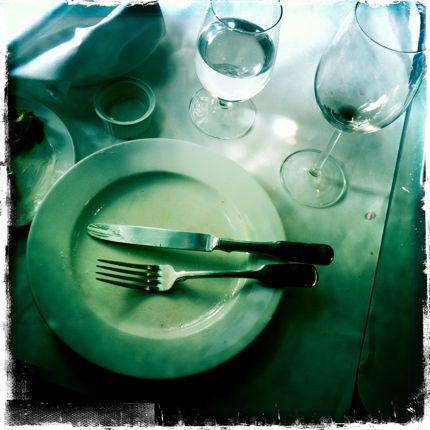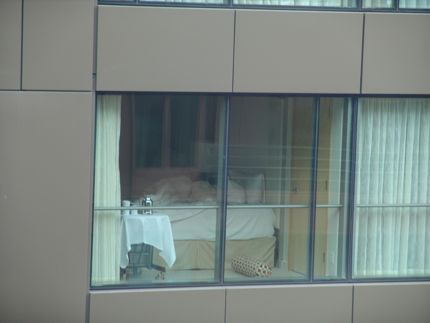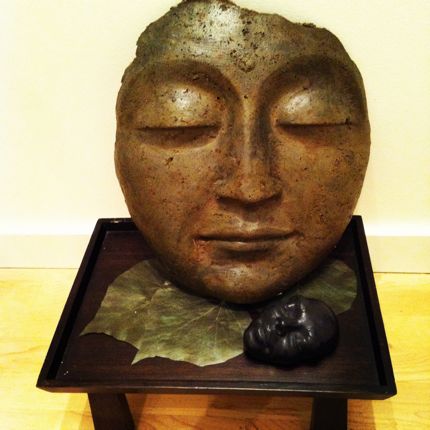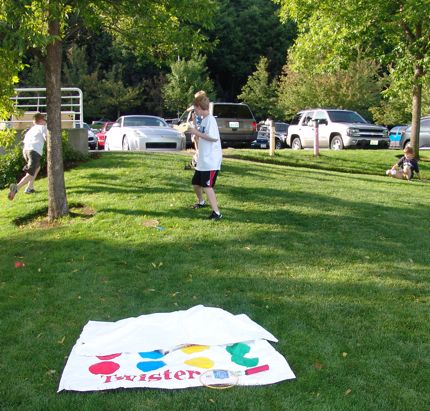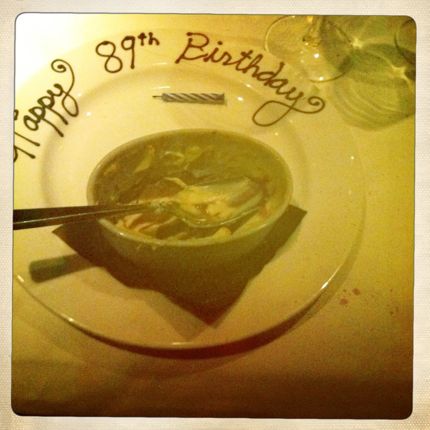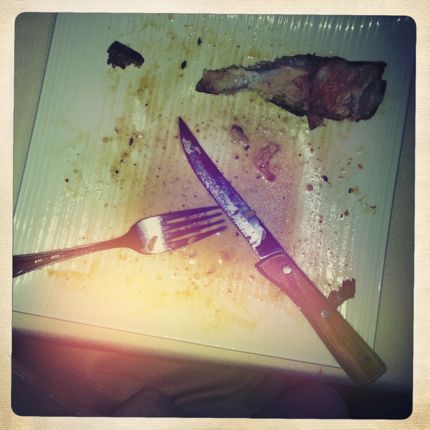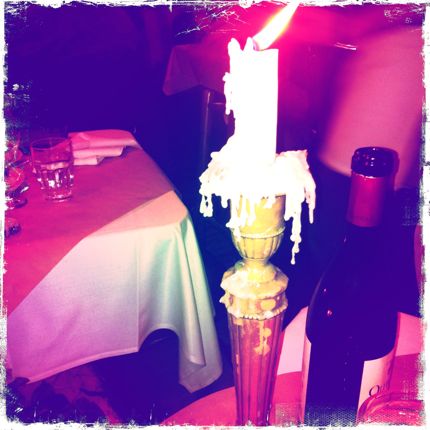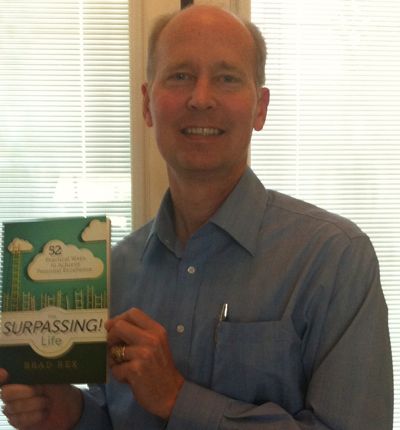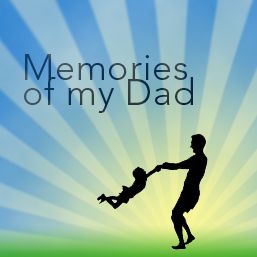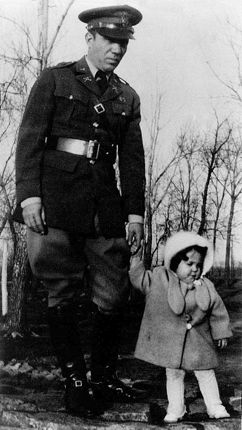
Inspiring Moment: Seattle Tugboat
Written by Braiden Rex-Johnson
Comments and Praise
Robert Bly Poem: Things to Think
Written by Braiden Rex-Johnson on June 28, 2012
This poem, Things to Think, was written by Robert Bly, a groundbreaking poet, editor, translator, storyteller, and father of what he has called “the expressive men’s movement.”
The last lines are particularly haunting and in the Five More Minutes With zeitgeist: Tell you you’re forgiven, Or that it’s not necessary to work all the time, Or that it’s been decided that if you lie down no one will die.
Think in ways you’ve never thought before.
If the phone rings, think of it as carrying a message
Larger than anything you’ve ever heard,
Vaster than a hundred lines of Yeats.
Think that someone may bring a bear to your door,
Maybe wounded and deranged; or think that a moose
Has risen out of the lake, and he’s carrying on his antlers
A child of your own whom you’ve never seen.
When someone knocks on the door,
Think that he’s about
To give you something large: tell you you’re forgiven,
Or that it’s not necessary to work all the time,
Or that it’s been decided that if you lie down no one will die.
Comments and Praise
Inspiring Moment: Orange Poppy
Written by Braiden Rex-Johnson
Comments and Praise
Inspiring Moment: Driftwood
Written by Braiden Rex-Johnson
Comments and Praise
Playing Favorites
Written by Brad Rex on June 25, 2012
Here is the fourth offering from one of our frequent guest columnists, Brad Rex. Not only is Brad my beloved brother, but he’s head of The Brad Rex Group, a consultant, noted public speaker, husband for 30 years, and father of three.
I’m proud to report that Brad’s new book, “The Surpassing! Life,” was published in May, so is now available for purchase here.
And I’m also honored to be among the first to excerpt parts of “Surpassing!” in the coming months.
Here’s his chapter entitled, Playing Favorites, which showcases the idea that every person is important and makes a difference. It speaks to the Five More Minutes With zeitgeist because we should all value and praise the worth of those around us (especially friends and family members) each and every day.
Thanks for your wisdom, as always, Brad. And congrats on a job well done with your new book!
Rejoice in your special talents, and recognize others.
C. S. Lewis
But I also want you to think about how this keeps your significance from getting blown up into self-importance. For no matter how significant you are, it is only because of what you are a part of.
Bible, 1 Corinthians 12: 19
Diversity and inclusion is a significant theme at Disney parks and resorts. The rallying cry used by Disney is R.A.V.E.—Respect, Appreciate and Value Everyone.
I really like this message, as it captures the idea that every person is important and makes a difference.
As you live out the idea of respecting, appreciating, and valuing everyone that you meet, you will develop strong relationships of mutual admiration.
It pains me to watch a person smile and greet a fellow traveler at the airport, but ignore the custodian, as if he was not there. We all have a tendency to judge a person’s value and only interact with people who have an equal or greater “value” than us. And some actually demean people who are perceived as having less value.
I wasn’t supposed to play favorites as the leader of Epcot. But, I have to admit that I did have a favorite group of Cast Members—the Custodial team. This team was very proud of the work that they did every day, 24 hours a day, 365 days a year, keeping Epcot spotless.
I tried to attend many Custodial pre-shift meetings. When I did, you could hear a buzz around the room that the VP was there. I would often start the meetings by asking the group, “Who is more important—me or you?”
I would go on to say that, if I were gone for a month, very few Epcot Guests would notice. It might impact our longer-range plans and there may be a few small hits, but, overall, the park would keep running well.
However, if the Custodial team was gone for a day, imagine what would happen—trash bins overflowing, restrooms filthy, kitchens unsanitary. So, who is more important?
In 2004, Richard Branson, the billionaire leader of the Virgin companies, had a reality television show entitled The Rebel Billionaire: Branson’s Quest for the Best. Through a series of business and physical challenges, Branson eliminated contestants, with the final contestant winning the opportunity to lead one of Branson’s companies, Virgin Worldwide.
One episode featured a business presentation that the team had to create and then present to Branson. The team worked on the presentation and was told to go across town by limousine.
One member of the team was the clear leader, and was a favored candidate to win the ultimate prize. When the group arrived at the building exit, the limousine was not there. Finally it arrived. Words were exchanged with the limousine driver, everyone got it, and they arrived at their destination.
Richard Branson was not in the presentation room, and the group was told to present to some of his executives. The favored candidate did a brilliant job presenting and answering questions.
At the end, the door to the conference room opened and Richard Branson walked in, dressed in a chauffeur’s uniform.
He stared directly at the favored candidate and told him he would never run one of his companies. The picture then went to video of the interaction with the limousine driver, and showed the candidate berating the chauffeur, who was Richard Branson in disguise, for being late and stupid.
“If this is how you treat someone who is serving you, you will not serve as a leader in the Virgin organization,” said Branson. Branson saw that this young leader did not respect, appreciate, and value everyone, and his relationships would suffer because of it.
I used to put on a Custodial costume and walk around Epcot, panning and brooming. It was as if I was invisible. I could talk to Guests, watch how managers interacted with Cast Members, and gauge the service of the operation much better than when people knew the VP was in the park.
And, it sent a clear message to the Cast at Epcot that I believed every job and every person was important.
Are you known as a person who respects, appreciates, and values everyone? If so, you will find people will want to know you and build relationships with you.
On the other hand, if you tend to demean and belittle others, you’ll lead a lonely and often bitter life.
The Bible tells us that we should “in humility, consider others better than yourself.” If you approach people this way and express genuine interest in them, you can create strong relationships and a wonderful, surpassing life.
Action Points
• Respect, appreciate, and value everyone, especially those who serve you.
• Get “in costume” and do other people’s roles, to understand their life.
• Consider others better than yourself.
Payoff
Deeper relationships, greater respect and appreciation of others, a diverse and inclusive work and personal life
Comments and Praise
Inspiring Moment: Downtown Seattle
Written by Braiden Rex-Johnson
Comments and Praise
Father’s Day Remembered
Written by John Paul Carter on June 21, 2012
After all the wonderful Memory of Dad stories that we published last week in honor of Father’s Day, I couldn’t resist one last one. It’s courtesy of one of our frequent guest columnists, John Paul Carter, an ordained minister who pens a column entitled, “Notes From the Journey,” for the Weatherford Democrat newspaper near Fort Worth, Texas. Thanks, as always, John Paul!
From the time I was 14, my parents insisted that I find a summer job. By the time I entered Baylor in 1956, I had labored as a grocery-sacker, soda-jerk, shipping clerk, and metal worker. At the time, although I did my work well, I saw little connection between it and my future vocation as a minister.
As my sophomore year at Baylor drew to a close, having failed again to find a summer church position, I hired on as a counselor at the Dallas Big Brothers’ Camp Tammi Babi. The wilderness campsite was located in the rugged cedar-brakes near Cedar Hill (later the home of Northwood Institute).
It consisted of a base camp (dining hall and swimming pool) and several outlying campsites, each housing 8 boys and 2 counselors who lived in tents, cooked most of their meals over a wood fire, and “roughed it” for a month at a time.
I had lived in the city all my life, never been a Boy Scout, and only been camping once or twice. Looking back, I’m not sure who was more desperate, me for a job or the camp director for counselors.
Before the boys arrived for camp, we were required to complete a grueling, two week orientation during which we prepared the campsites and ourselves. There was a thick counselor’s manual to be mastered, new outdoor skills to be learned, and lots of back-breaking labor – all in 100 degree weather.
What had I gotten myself into?
The first Sunday at camp was Father’s Day and we were allowed to go home to do our laundry and enjoy a few hours in air-conditioning with our families before taking up our cross again. None of us lingered at the front gate that morning and some of us doubted we would return!
As soon as I got home, I began to describe my ordeal to my father – sleeping on a cot in a hot tent, digging latrines and fire-pits out of solid rock, exhausting heat, snakes, spiders, horseflies, and very little pay.
I painted a miserable picture and asked his permission to quit and search for another job.
Daddy listened patiently and was sympathetic to my plight. After a brief silence, he said, “I want you to go back out there and give it your best for one more week. Then, if you still feel the same way, come home and I’ll help you find another job.”
Reluctantly, I agreed.
To my amazement, after another week of hard work with the other counselors, I wanted to stay and spend the next two months in the cedars as “Chief Paul” with a bunch of eight-year-old boys I’d never met before.
Although I couldn’t imagine it at the time, that summer turned out to be one of the best times of my life. I learned more about life, survival, grown-ups, children, myself, and nature than I ever would have learned in a church – lessons that have lasted a lifetime.
Surely God was where I didn’t expect him and I almost missed it!
That summer might not ever have been, had it not been for my dad.
As he often did, Daddy listened, understood, encouraged, gently guided, and then let me make my own decision.
That’s why, on Father’s Day, over fifty years later, I still give thanks for my dad!
Comments and Praise
Inspiring Moment: Secret Garden
Written by Anonymous
Comments and Praise
Inspiring Moment: Bats in Australia
Written by
Comments and Praise
Memory of Dad: Prince Albert in a Can
Written by Jean Hartley on June 17, 2012
Military-officer Daddy and toddler Jean holding hands
Part 1
Recently I spied a red Prince Albert tobacco can in a cigar showcase and my throat tightened.
Suddenly I was back in high school doing dumb telephone pranks.
“Do you have Prince Albert in cans? You better let him out before he suffocates.”
Fifty years later that red can evoked powerful memories of, “. . .if only.”
In the 1940s we lived in a big house in Indianapolis, Indiana. I remember sitting on my Daddy’s lap in the worn winged-back chair listening to the Motorola radio sputtering out news from the front. We heard Churchill exhorting Londoners to keep up their courage during the Blitz.
Relaxing in the fading light of day, Daddy stirred the ice cubes in his evening bourbon and water with his finger. When my mother wasn’t looking, he let me chew the melting ice with its sharp alcohol bite.
The bourbon’s companion was either a cigar or pipe. When he smoked his Roi Tan cigar, he would ask me,”You like music?”
I knew what came next but could not resist the game. “Well, here’s a band,” he’d say as he slipped a paper cigar ring onto my finger.
I can still smell the Prince Albert crimp-cut tobacco as Daddy packed the loose shreds into his pipe bowl.
When we walked together I always hung on to his little finger. From my ground view I saw the highly polished leather riding boots, dove-grey jodhpurs, and a Sam Brown belt with holstered pistol, usual attire for Army officers in pre -World War II days.
The eagle insignia for the rank of Colonel sat on his shoulder epaulets, replaced later with the single silver star for Brigadier General.
Long after his polo and riding days were over, Daddy still carried a riding crop and wore jodhpurs.
Later he carried a cane, not for a physical need but for the Field Marshall Montgomery image.
Clinking ice, pungent pipe tobacco, and polished leather are vivid Daddy sounds and smells.
Part 2
In 1943 Daddy returned to our small French-speaking Louisiana town as a decorated war hero after 25 years of Army service. A parade honored the Cajun country boy who became a general.
I adored my Daddy but there were a few things I had trouble forgiving. He told me stories at bedtime about when he was a little girl, which I believed.
I don’t remember when I discovered the truth, but I always wanted to know “why” the little-girl charade? I remember his answer, “Cher, meant no harm. Thought you would like a girl story better. Forgive me?”
I always forgave him, but wondered about the other tales of stolen watermelons floating down the bayou.
Those romantic stories sounded like Huckleberry-Finn adventures. Were those fibs too?
“I knew our Division would soon leave for North Africa. Just wanted to comfort you, hold you before the good-night time.”
What about the promise to build a two-story dollhouse with electric lights, miniature furniture, and little family dolls with movable arms and legs?
The memory of his voice is still clear.
“Don’t know why I promised you things I knew I couldn’t deliver. Maybe I wanted to create reasons to come home to.”
Years later when I was all grown up and didn’t cry over lost doll houses, I saw rows of colorful campaign ribbons pinned above his left pocket representing medals awarded for gallantry in World War II. Among them were the highly valued Croix de Guerre and the French Legion of Honor.
Although I did not grasp the significance of these honors, I loved to trace my fingers over the campaign ribbons as Daddy told war stories.
Soon the V-mails and Stars and Stripes newspapers were packed away to yellow with time. After graduate school, I fled to the West Coast with others searching for the coffee houses of the Beat Generation.
My phone conversations home were brief – our family did not believe in extravagant long-distance calls. I assumed we would have time for more chats and visits but death took Daddy too soon at only 68 years.
I lost my precious last five minutes.
Part 3
During late-night hours I often replay old memory tapes.
I curl up in Daddy’s lap in the wing-back chair and ask again about the watermelons . . . and the dollhouse.
I know we will sit together by the Motorola for eternity, smell the aromatic Prince Albert, and clink ice cubes laced with bourbon.
Editor’s Note: This beautifully written story was submitted by Jean Hartley, a polio survivor who serves as coordinator for Disabled Adventures Hawaii, a nonprofit organization that “connects people with limited mobility on-line to accessible activities on the Kona coast of the Big Island of Hawaii.” Jean also blogs at Stories About Disability. Thank you so much, Jean!


